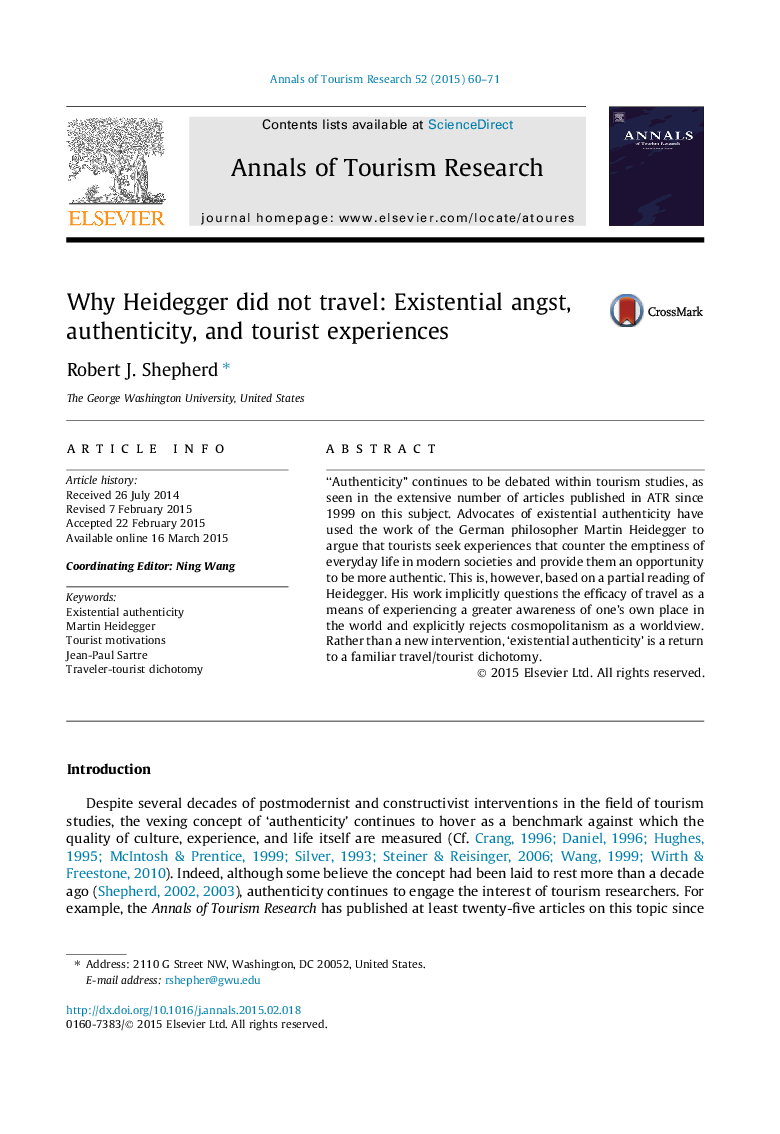| کد مقاله | کد نشریه | سال انتشار | مقاله انگلیسی | نسخه تمام متن |
|---|---|---|---|---|
| 1007011 | 1482244 | 2015 | 12 صفحه PDF | دانلود رایگان |
• Examines ‘existential authenticity’ within tourism studies.
• Critiques emphasis in the existing literature on the work of Martin Heidegger.
• Heidegger did not accept travel as a platform for achieving authenticity.
• He argued that full being/dasein is found within a spatially grounded community.
• Heidegger himself lived a life almost entirely devoid of travel.
“Authenticity” continues to be debated within tourism studies, as seen in the extensive number of articles published in ATR since 1999 on this subject. Advocates of existential authenticity have used the work of the German philosopher Martin Heidegger to argue that tourists seek experiences that counter the emptiness of everyday life in modern societies and provide them an opportunity to be more authentic. This is, however, based on a partial reading of Heidegger. His work implicitly questions the efficacy of travel as a means of experiencing a greater awareness of one’s own place in the world and explicitly rejects cosmopolitanism as a worldview. Rather than a new intervention, ‘existential authenticity’ is a return to a familiar travel/tourist dichotomy.
Journal: Annals of Tourism Research - Volume 52, May 2015, Pages 60–71
